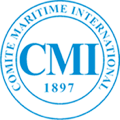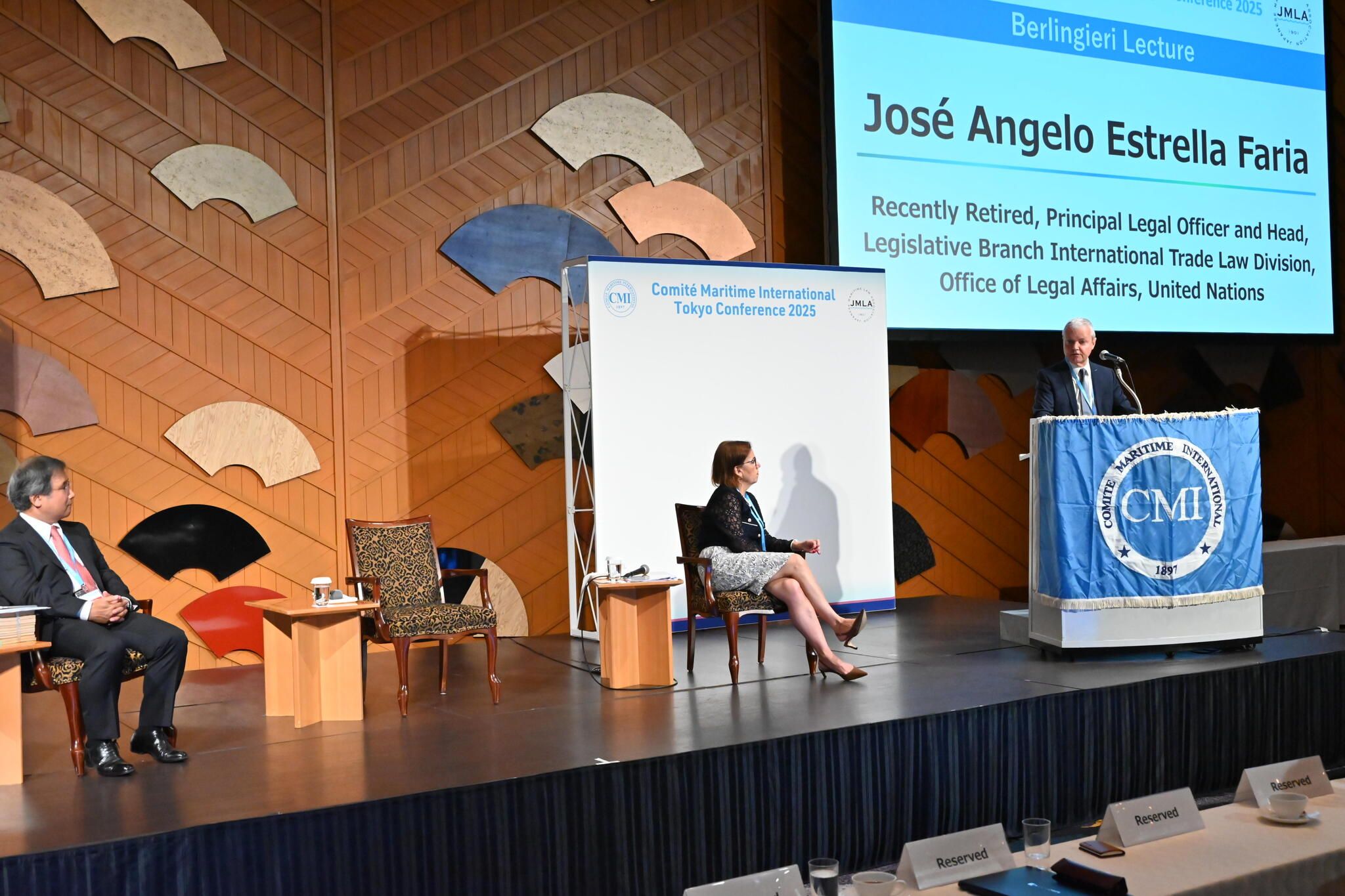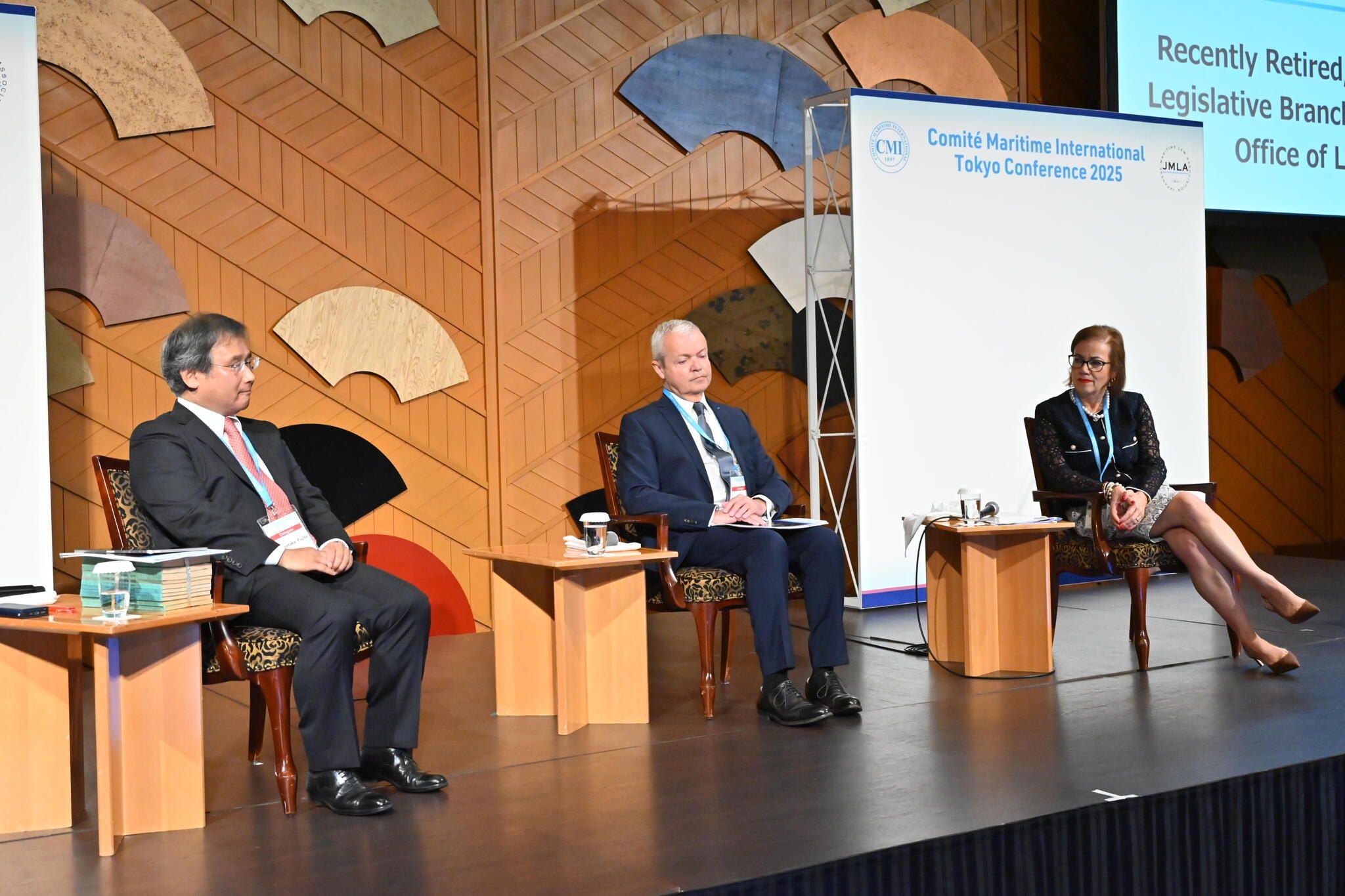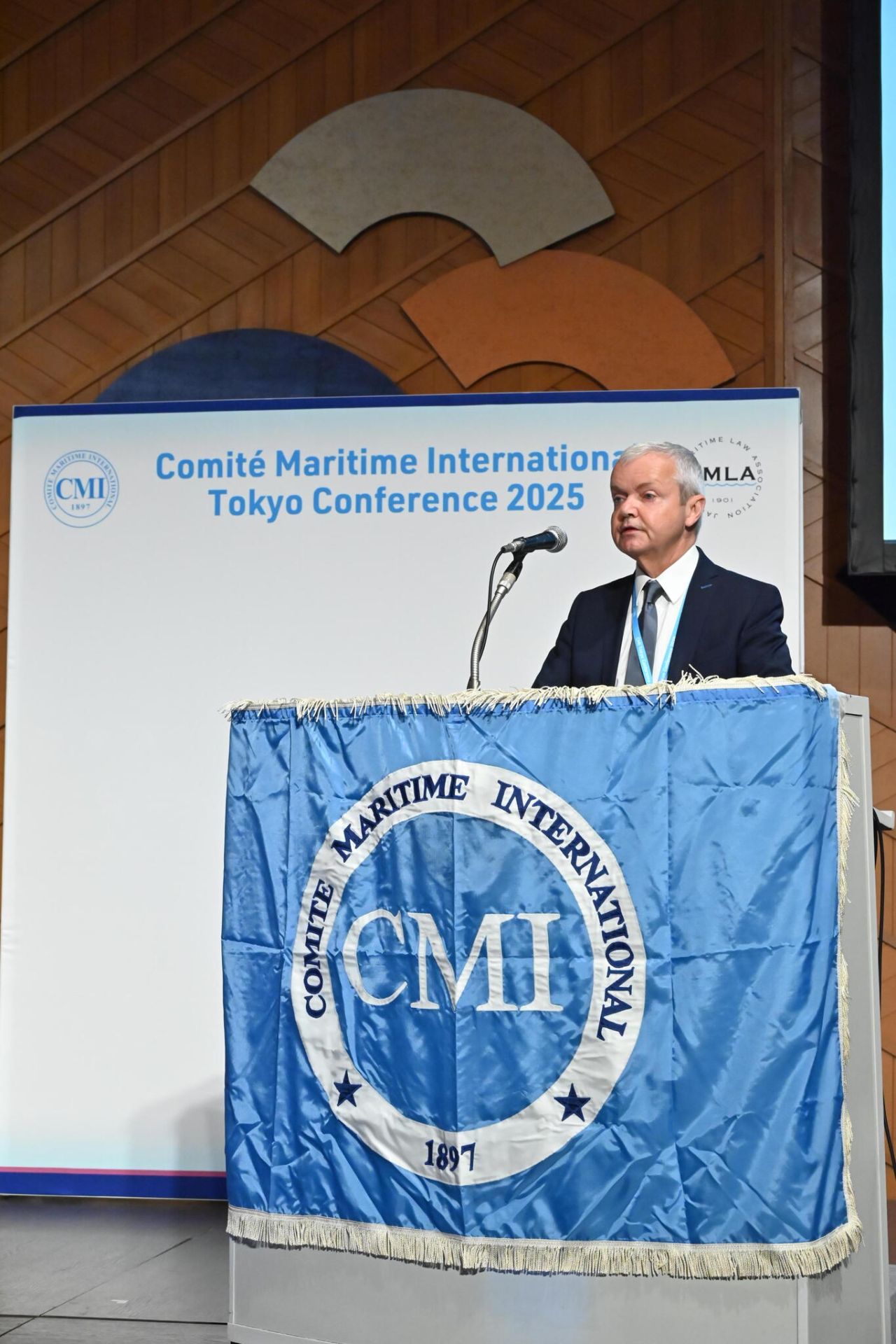𝐁𝐞𝐫𝐥𝐢𝐧𝐠𝐢𝐞𝐫𝐢 𝐋𝐞𝐜𝐭𝐮𝐫𝐞 𝐚𝐭 𝐭𝐡𝐞 𝐂𝐌𝐈 𝐓𝐨𝐤𝐲𝐨 𝐂𝐨𝐧𝐟𝐞𝐫𝐞𝐧𝐜𝐞 𝟐𝟎𝟐𝟓
This years’ Berlingieri Lecture was delivered by Mr. José Angelo Estrella Faria, former Secretary-General of UNIDROIT and former Principal Legal Officer at UNCITRAL and had the title “The CMI and the harmonization of maritime law: achievements, partnerships and challenges”.
After noting the remarkable contribution of the Berlingieri family to the harmonization, codification and further development of maritime law, Mr. Faria focused on lessons learned from the process of maritime law-making from the perspective of UNCITRAL, a CMI partner in the development of two of the latest maritime law treaties, the “Rotterdam Rules”, the “Beijing Convention on the Judicial Sale of Ships” .
He highlighted the changes in the process since the foundation of the CMI, and the challenges it now faces to finalise and adopt texts resulting from its work.
Mr. José Angelo Estrella Faria notes that the shift to international organizations as negotiating venues has made the process much more complex, because of the need for a multilateral consensus on the usefulness of a topic to even start intergovernmental discussions about it.
He continues by stating that, industry and political shifts have also brought more actors to the table and increased the need for the CMI to explore new working methods and partnerships in rulemaking. The recent experience with the Beijing Convention showed, however, that the CMI was flexible enough to adapt to the challenges posed by that changing environment. The CMI could be confident that by keeping a healthy dose of realism as to how much it can achieve, how it does it, by which means and with whom, and exploring different synergies with different partners – including unexpected ones, like the EU Commission – the CMI will still have plenty to do in the future.



